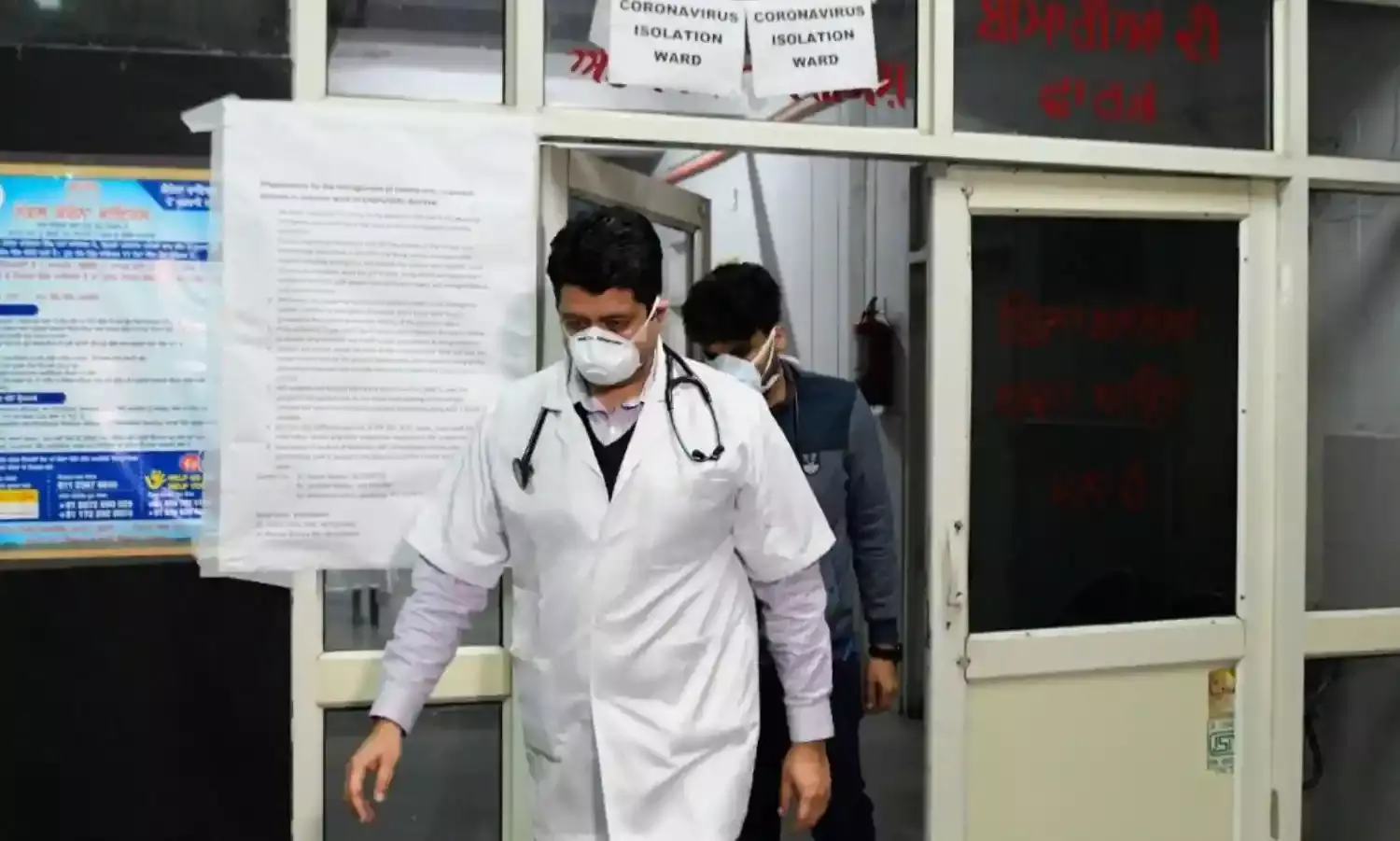The Plight of Healthcare Workers During the Pandemic
The Plight of Healthcare Workers During the Pandemic

In March 2020, the World Health Organisation announced and called for governments and industries dealing in medical care to enhance production of protective gears by 40% due to the rising number of COVID-19 infected cases which would otherwise, directly endanger the health workers worldwide.
The window of opportunity that the lockdown provided was mainly to increase healthcare preparedness that was essential to contain further outbreaks and spread of the virus. However, the unlocking mode has not been free from tensions, lack of protective measures and medical infrastructure for both the healthcare workers and the patients respectively.
The physician, health workers along with others who are at the immediate receiving end of this pandemic due to their nature of service have been referred to as frontline warriors since the beginning of this trail. However, warrior as the term denotes is largely used for those engaged in warfare and war, as the Oxford dictionary defines is ‘a situation in which two or more countries or groups of people fight against each other over a period of time’.
Hence referring to healthcare workers i.e. physicians and others in healthcare sectoras frontline warriors is not free from problems.
Calling them frontline workers instead of warriors is more appropriate in nature due to two major reasons. First, healthcare workers are involved mainly in protecting and saving lives as per their oath, obligation and compassion as demanded by their profession. They do not sign in a vocation that calls for either risking their own lives or the life of those who are in their hands. Pandemic or no pandemic they are always working for the better health and survival of the patients.
Nonetheless, the present COVID-19 pandemic has certainly expanded their duties wherein they are at the brink of risking their lives every time they are treating and taking care of virus infected patients. The second vital point that can be raised in arguing for calling them frontline workers rather than warriors lies in the nature of their duty.
Unlike, warriors they aren’t engaged in protecting any particular community, territory or border. They are working towards saving lives across their communities, territories and borders. They all have a common invisible enemy; the fight is of a greater degree understood as saving lives, reducing mortality and treating patients under extremely difficult conditions of work. The task of the physicians and healthcare workers are by way most humane in nature.
The nomenclature, ‘frontline warriors’ have barely worked in favour of the physicians and healthcare workers. While they have been out in the streets, in containment zones for testing and contact tracing they have been meted out with harsh treatments in various places.
They have had to deal with stone pelting and assault while out doing their duties. Many healthcare workers have contracted the virus in serving for infected patients and many times so in dearth of proper protective gears. Beginning with top physicians right to ASHA workers, these healthcare workers have projected immense resilience.
In stories that have been doing rounds across media platforms, there are stories of doctors dying of COVID-19 infection but who were denied dignity in death, as neighbourhood communities opposed their burial or cremation.
There are nursing staff being sacked in regions which have been worst affected by the virus. Due to dearth of proper public healthcare facilities patients of highest credible order are being put in private hospitals while those in the lowest rung of the society are dying in the streets waiting for their turn to be treated.
Some doctors in Delhi were not been paid their monthly salaries in time and many of them faced pay cuts in several others areas.
Hence, instead of patronizing rhetoric and flowers it is imperative to give the frontline heathworkers their due. There is no need to endow them with terms that carry wrong connotations, but there is need to recognise their work and shower them with respect with a sound work environment, protective gear, and allowances that supports them and their families in these days of crisis.
Minakshi Biswas is Assistant Professor, BHKM, West Bengal State University



